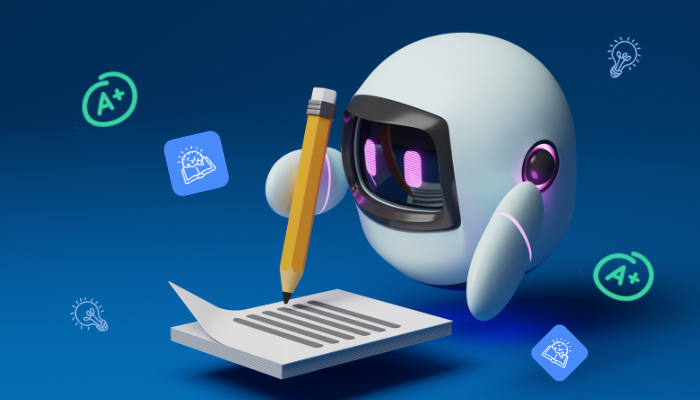Top Educational Trends to Watch in 2025
The education landscape is evolving at a rapid pace, driven by technological innovation, changing societal needs, and the growing demand for personalized learning experiences. As we step into 2025, several key educational trends are emerging that will redefine how students learn, how teachers teach, and how institutions operate. These trends reflect a shift towards more flexible, inclusive, and future-ready education models.
In this post, we’ll explore the top educational trends to watch in 2025 and how they’re shaping the future of learning.
1. AI-Powered Personalized Learning
Artificial Intelligence (AI) is transforming education by enabling personalized learning experiences tailored to each student’s strengths, weaknesses, and learning pace. AI-driven platforms can assess student performance in real time and adapt content delivery to maximize engagement and comprehension.
Why it matters in 2025:
With advances in machine learning, AI tools are becoming more intuitive and capable of offering real-time feedback, automated grading, personalized quizzes, and even custom lesson plans. Platforms like Squirrel AI and Carnegie Learning are already setting the stage for this trend.
2. Hybrid Learning Models
The COVID-19 pandemic introduced the world to remote education, and its legacy continues in the form of hybrid learning. This model blends traditional in-person instruction with online learning, offering students flexibility and schools greater adaptability.
What’s new in 2025:
Hybrid learning is becoming more sophisticated, with seamless transitions between online and offline components. Schools are investing in robust learning management systems (LMS), and students benefit from both the structure of classroom learning and the flexibility of digital access.
3. Focus on Digital and Media Literacy
As misinformation spreads rapidly online, digital literacy and media literacy have become essential components of modern education. These skills help students critically evaluate information sources, understand digital ethics, and navigate the online world responsibly.
Why it’s trending:
In 2025, curricula are increasingly including modules on identifying fake news, understanding algorithms, and protecting personal data—essential skills for living in an information-rich digital society.
4. Gamification and Game-Based Learning
Gamification—the use of game elements in education—is continuing to rise as educators seek to make learning more engaging. Points, badges, leaderboards, and interactive challenges motivate students and encourage participation.
What’s evolving:
In 2025, educational games are more immersive, story-driven, and tailored to academic content. Platforms like Kahoot!, Classcraft, and Minecraft Education Edition are expanding their offerings, and more schools are integrating them into the curriculum.
5. Microlearning and Bite-Sized Content
In a fast-paced world, attention spans are shrinking. Microlearning offers short, focused learning experiences that are easy to consume and remember. These are especially effective for skills training, language learning, and revision.
Why it’s growing:
Microlearning aligns with the way modern learners interact with content—via mobile apps, short videos, quizzes, and interactive slides. In 2025, expect to see more institutions using this approach to complement longer-form lessons.
6. EdTech Integration and Smart Classrooms
Smart classrooms equipped with digital boards, IoT devices, and real-time data analytics are becoming more widespread. Education technology (EdTech) is no longer supplemental—it’s integral.
What to expect in 2025:
- Voice-activated assistants in classrooms
- AI tutors that answer student questions instantly
- Real-time analytics dashboards for teachers
These tools help educators monitor progress and adjust instruction dynamically.
7. Soft Skills and Emotional Intelligence (EQ) Education
Alongside academic excellence, there’s a growing recognition of the importance of soft skills—like communication, teamwork, empathy, and adaptability. Employers and educators alike are emphasizing emotional intelligence (EQ) as a key predictor of success.
Why it matters now:
In 2025, more schools are implementing programs that explicitly teach interpersonal skills, resilience, and self-regulation through peer interaction, group work, and reflection exercises.
8. Sustainability and Climate Education
The climate crisis is one of the most pressing issues facing the next generation. As a result, environmental education is gaining momentum, not just as an elective, but as a core part of the curriculum.
What’s new:
Schools are incorporating sustainability projects, environmental science modules, and eco-literacy programs. Students are learning how their actions impact the planet and are being encouraged to become eco-conscious citizens.
9. Global Learning and Cross-Cultural Exchange
Thanks to technology, global learning opportunities are more accessible than ever. Virtual exchange programs, international group projects, and language learning apps allow students to connect across cultures.
In 2025:
Expect an increase in global classrooms where students collaborate internationally through video conferencing, cloud tools, and multilingual learning platforms, promoting diversity and global awareness.
10. Competency-Based Education (CBE)
CBE allows students to advance based on their ability to master a skill or competency, rather than the time spent in class. This approach fosters deeper understanding and practical application of knowledge.
What’s emerging:
In 2025, more institutions are adopting CBE frameworks, especially in vocational training and higher education. It supports lifelong learning and prepares students for real-world challenges by focusing on demonstrable outcomes.
Conclusion
As we look ahead to 2025, the education sector is clearly undergoing a profound transformation. These trends reflect a broader shift towards more personalized, inclusive, and forward-thinking learning environments. Whether through AI, gamification, or sustainability education, the future of education is centered on adaptability, engagement, and global citizenship.
Educators, students, and parents alike must stay informed and embrace these innovations to ensure that learning remains relevant and empowering in a fast-changing world. By staying ahead of these trends, institutions can not only meet today’s educational demands but also equip students for the challenges and opportunities of tomorrow.



